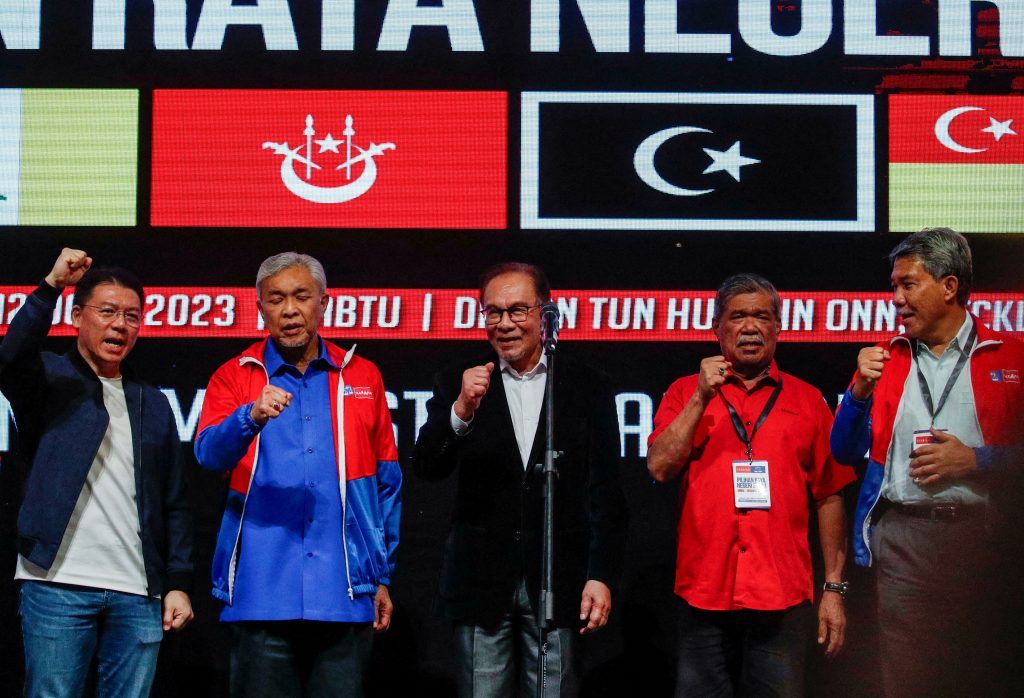When we talk about the state, Charles Tilly memorably argued, the word ‘protection’ has a double meaning — at once reassuring and menacing. The reassuring part is that the state promises to protect us from harm, the menacing part is that the state can also act like a racketeer, rescinding protection instead of extending it.
We can say something similar about the word ‘compromise’ when we talk about democracy. On the one hand, democratisation cannot succeed and stabilise unless parties compromise over the rules of the game, especially the peaceful transfer of power and mutual respect for electoral results.
But ‘compromise’ has negative connotations too. When winners compromise their principles and platforms to build coalitions with their erstwhile rivals, the hopes that voters placed in a democratic transfer of power can be disappointed or even dashed.
Simply put, democratic compromise is healthy, but compromised democracies are unhealthy.
Malaysia’s gradual democratic transformation since 2008 has seen much more compromise in the negative sense of the word than in the positive sense. Elections are not yet followed by the losing coalition’s acceptance of their defeat and acquiescence to their opposition status until the next election. The positive spirit of compromise is still sorely missing.
But elections are being followed by power-sharing deals and deference to ethnic and religious sensitivities that make decisive reforms nearly impossible. In its negative sense, compromise is all too evident.
Electoral politics in Malaysia has been as chaotic in the 21st century as it was predictable in the 20th. The ruling United Malays National Organisation (UMNO) won elections in a landslide after landslide from 1955 to 2004, leading the diverse Barisan Nasional (BN) coalition from its position of dominance.
UMNO’s electoral dominance began to show cracks in the 2008 election, when the BN lost its two-thirds majority in parliament for the first time. The age of authoritarian hegemony was ending and the age of polarising pluralism was born.
By the 2013 election, the BN had lost the popular vote to the opposition coalition Pakatan Rakyat. In the 2018 election, the BN lost power outright to the Pakatan Harapan (PH) coalition. UMNO was thus knocked out of power for the first time. The 2022 election saw long-time opposition leader Anwar Ibrahim finally accede to the prime ministership as the UMNO slumped to become only the fifth-largest party in parliament — a result once unthinkable.
This gradual political transition has been a far cry from a clear break in which an authoritarian regime gives way peacefully and voluntarily to a winning democratic opposition. As the Anwar-led opposition was ascending, it repeatedly threatened to topple the BN-led government by inviting defections from the parliamentary majority.
Since UMNO and the BN always won elections unfairly, one can understand why Anwar was so eager to undo electoral results with backroom deals. Yet the norm that electoral results must be respected until the next electoral go-round — so critical to democratic compromise in its positive sense — was failing to emerge as Malaysian elections got more and more competitive.
The culmination of this uncompromising spirit could be seen in the infamous ‘Sheraton move’ of 2020. It was bad enough that remnants of the old guard had finagled in 2018 to place their erstwhile champion, Mahathir Mohamad, as prime minister of the PH coalition government instead of Anwar. But they went even further to mobilise government defectors and solicit extraordinary support from Malaysia’s monarchy to recapture control and oust the Anwar-led PH from government entirely.
The fundamental obstacle to a positive spirit of democratic compromise has been this — as long as the BN was winning elections, those wins lacked democratic legitimacy. Now that a multiethnic opposition is winning elections, its victories lack legitimacy among Malaysians devoted to ethnic Malay primacy as the foundation of the nation.
The PH government still labours under a sword of Damocles — the threat that the authoritarian old guard will conspire to topple it before the next national election. If the government makes bold reform moves, they will only yield results slowly, but they will quickly trigger calls and manoeuvres for the government’s removal.
The result has been a compromised democracy in its negative sense. Even before winning the 2022 election, the PH had watered down its reformist manifesto into a more anodyne agenda centred on the cost of living. The election was then followed by a marriage of arithmetic necessity between the PH and the BN — a ‘lesser evil’ than the more Islamist, Malay-first Perikatan Nasional coalition.
This power-sharing arrangement meant UMNO leader Ahmad Zahid Hamidi was made deputy prime minister, despite facing dozens of corruption charges. Predictably, those charges have been suspended. If the PH government cannot somehow re-establish its reputation for opposing corruption, its popular support will surely continue to sag.
Before ceding to despair, though, one must recall that there has been a winning electoral coalition for pluralism and reform in place for over a decade now in Malaysia. The challenge for Anwar is to figure out how to mobilise that same coalition for political reforms. As an urgent remedy for Malaysia’s deepening sense of popular disillusionment, virtually any political reform would do.
Dan Slater is the James Orin Murfin Professor of Political Science and Director of the Center for Emerging Democracies at the University of Michigan.
This article is part of an EAF special feature series on 2023 in review and the year ahead.


Malaysia's democratisation has created a political environment where defeated coalitions fail to accept their losses and the winners engage in power-sharing arrangements that compromise their platforms and principles. While electoral victories for opposition groups have risen since 2008, these have been undermined by a deepening sense of political disillusionment and a lack of serious efforts at reform.